But they also refract them, making it possible for people to use state procedures (with all the power and access to legitimized violence this affords) to satisfy their own ends, outside of the rule of law. We argue that this is the key to understanding the psychology of authoritarianism.
25.09.2025 15:14 — 👍 2 🔁 0 💬 0 📌 0
How? States solve large scale coordination problems, largely with state rules and third-party punishments. State rules and state punishments codify everyday human desires for norms and rules, and third-party punishment
25.09.2025 15:14 — 👍 3 🔁 0 💬 1 📌 0
OSF
We propose that the everyday psychology of rules and 3rd party punishment is at the core of authoritarianism
Our view posits no new constructs, is ideology-agnostic, & considers relevant only interactions w the state
See our new working paper "Authoritarianism in Action" osf.io/preprints/ps...
25.09.2025 15:14 — 👍 15 🔁 8 💬 1 📌 0

The threat of analytic flexibility in using large language models to simulate human data: A call to attention
Social scientists are now using large language models to create "silicon samples" - synthetic datasets intended to stand in for human respondents, aimed at revolutionising human subjects research. How...
Can large language models stand in for human participants?
Many social scientists seem to think so, and are already using "silicon samples" in research.
One problem: depending on the analytic decisions made, you can basically get these samples to show any effect you want.
THREAD 🧵
18.09.2025 07:56 — 👍 326 🔁 149 💬 12 📌 58

🚨 NEW PREPRINT: Multimodal inference through mental simulation.
We examine how people figure out what happened by combining visual and auditory evidence through mental simulation.
Paper: osf.io/preprints/ps...
Code: github.com/cicl-stanfor...
16.09.2025 19:03 — 👍 52 🔁 15 💬 3 📌 1
One common view in moral psychology is “the primacy of the moral” - the view that people think your moral traits are what’s most fundamental about you
These new studies challenge that view, suggesting that people sometimes see artistic creation as just as fundamental as morality
17.09.2025 13:29 — 👍 6 🔁 3 💬 0 📌 0

indeed we find that the idea that aesthetic pursuits provide unique access to autonomy, rule-breaking, and authenticity, is partly how they provide us a feeling of nearness to our true selves. they provide an escape from the principles, rules, and conventions that define the moral domain
15.09.2025 15:56 — 👍 0 🔁 0 💬 0 📌 0

and when asked to imagine the very same person, at a crossroads in life, contributing moral or artistic value to society, we find that sometimes people judge those who take the aesthetic path to have found greater feelings of nearness to their true selves & freedom from rules and conventions
15.09.2025 15:56 — 👍 0 🔁 0 💬 1 📌 0

despite much research pointing to a "moral primacy" view where pursuing moral goodness will bring people closest to feelings of nearness to the true self, and win you friends and a good reputation--people want to see a plurality of values in an ideal society and an ideal life
15.09.2025 15:56 — 👍 0 🔁 1 💬 1 📌 0

you're having a sliding doors moment--you can either become a great artist or a great philanthropist. what path will make you feel like you've found your true self? @jowylie.bsky.social & @mattlindauer.bsky.social and i find that arts provide a unique one static1.squarespace.com/static/679ee...
15.09.2025 15:56 — 👍 13 🔁 3 💬 1 📌 2

Pseudo Effects: How Method Biases Can Produce Spurious Findings About Close Relationships - Samantha Joel, John K. Sakaluk, James J. Kim, Devinder Khera, Helena Yuchen Qin, Sarah C. E. Stanton, 2025
Research on interpersonal relationships frequently relies on accurate self-reporting across various relationship facets (e.g., conflict, trust, appreciation). Y...
In a new paper, my colleagues and I set out to demonstrate how method biases can create spurious findings in relationship science, by using a seemingly meaningless scale (e.g., "My relationship has very good Saturn") to predict relationship outcomes. journals.sagepub.com/doi/10.1177/...
10.09.2025 18:18 — 👍 158 🔁 69 💬 7 📌 11

Everyday Revenge
We are interested in stories of everyday revenge—cases where you successfully got back at someone after being wronged. Please think up an experience of when you took revenge and tell us about it.
Pl...
@anagantman.bsky.social @jowylie.bsky.social and I are starting to study everyday revenge. Have you ever successfully gotten back at someone after being wronged? We would love to hear about it.
docs.google.com/forms/d/e/1F...
#PsychSciSky #socialpsyc #cognition
08.08.2025 14:46 — 👍 28 🔁 19 💬 1 📌 1

Everyday Revenge
We are interested in stories of everyday revenge—cases where you successfully got back at someone after being wronged. Please think up an experience of when you took revenge and tell us about it.
Pl...
@paulbloomatyale.bsky.social @jowylie.bsky.social, and I are starting to study everyday revenge. Have you ever successfully got back at someone after being wronged? We would love to hear about it:
docs.google.com/forms/d/e/1F...
#PsychSciSky #socialpsyc #cognition
06.08.2025 15:50 — 👍 19 🔁 8 💬 3 📌 0
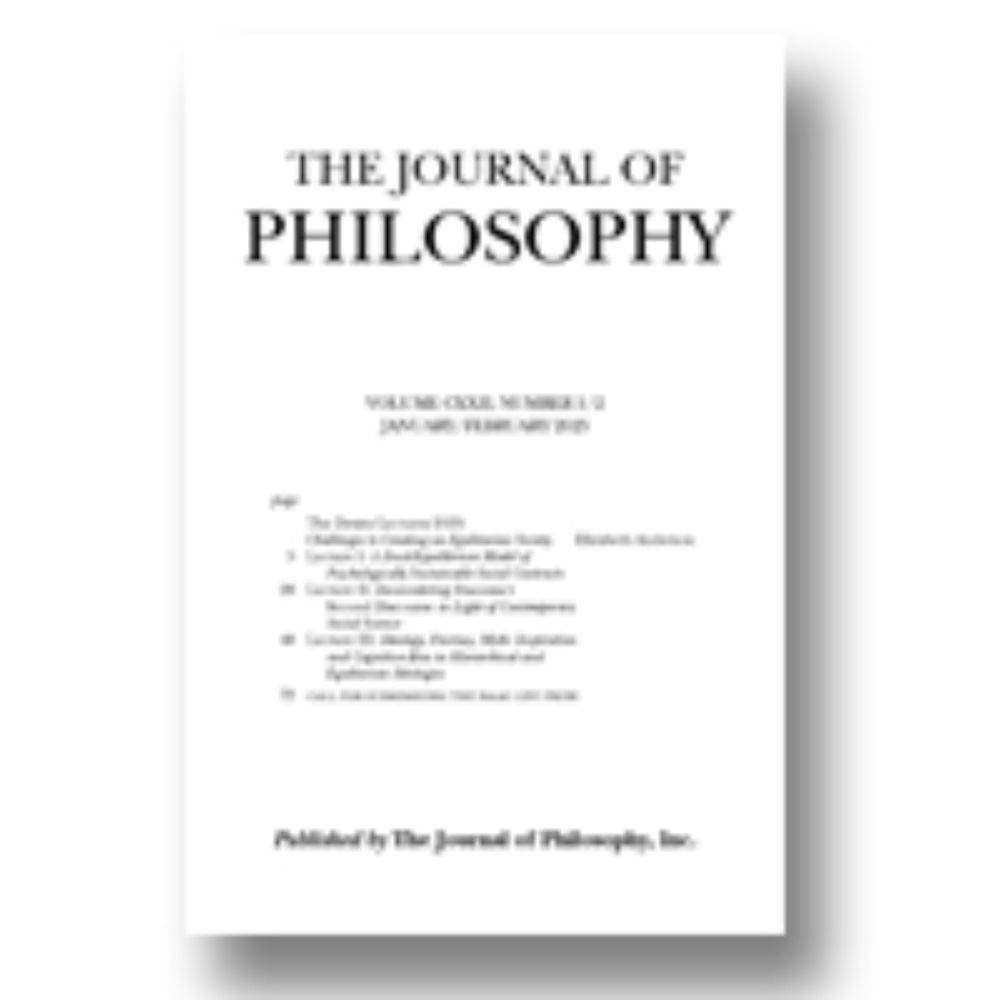
Resistant Beliefs, Responsive Believers - Volume 122, Issue 4, April 2025
Beliefs can be resistant to evidence. Nonetheless, the orthodox view in epistemology analyzes beliefs as evidence-responsive attitudes. I address this tension by deploying analytical tools on capaciti...
In this finally out (!) paper, I argue no—and cognitive science backs this up. We can keep the orthodox rationalist view of belief *and* recognize the difficulties in changing minds. The key is thinking of belief as requiring a *capacity* (not a reliable disposition) to respond to evidence.
29.07.2025 13:09 — 👍 26 🔁 5 💬 2 📌 0
🥂 officially promoted to associate prof of psych at brooklyn college & the CUNY grad center--and appointed in the philosophy department at the grad center 🥂
28.07.2025 15:14 — 👍 14 🔁 0 💬 0 📌 0
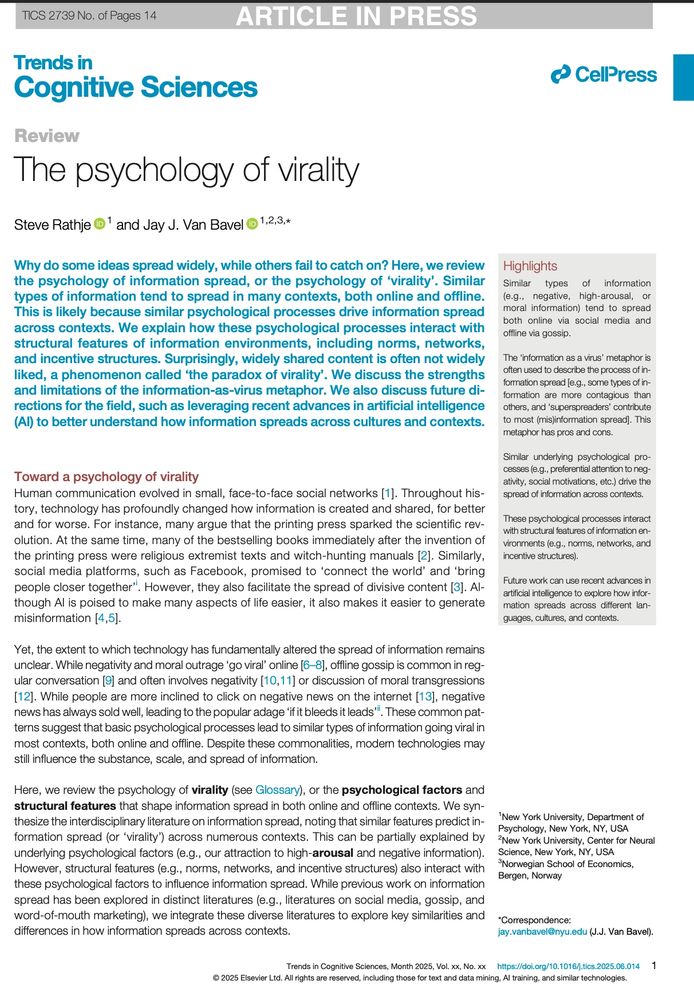
I have a new paper on "The Psychology of Virality" with @steverathje.bsky.social
We explain how similar psychological processes (eg preferential attention to negativity, social motives, etc.) drive the spread of information across online and offline contexts: www.sciencedirect.com/science/arti...
23.07.2025 20:22 — 👍 120 🔁 37 💬 2 📌 1
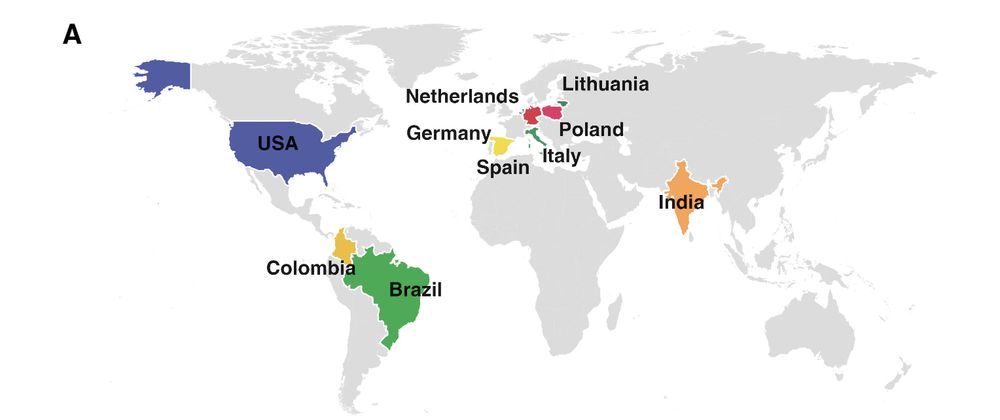
A now-classic experiment from Kevin Tobia found an effect of morality (becoming morally worse vs. becoming morally better) on intuitions about personal identity
A new study now looks at that effect across a variety of different cultures
www.researchgate.net/publication/...
24.06.2025 17:44 — 👍 16 🔁 7 💬 1 📌 0
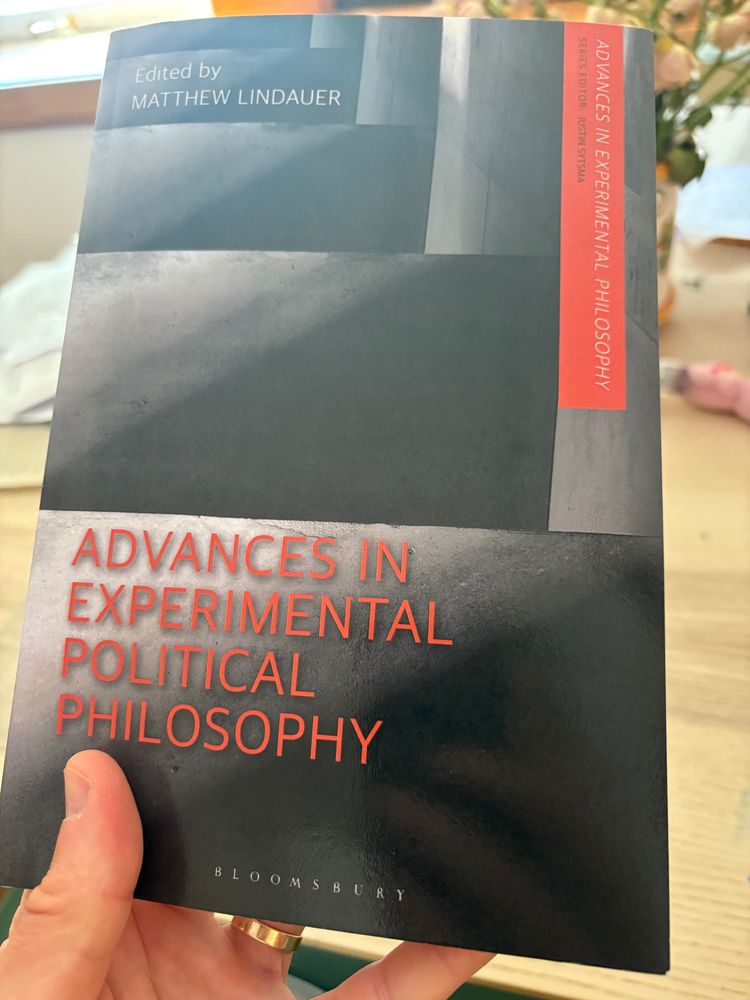
Paperback version of Advances in Experimental Political Philosophy.
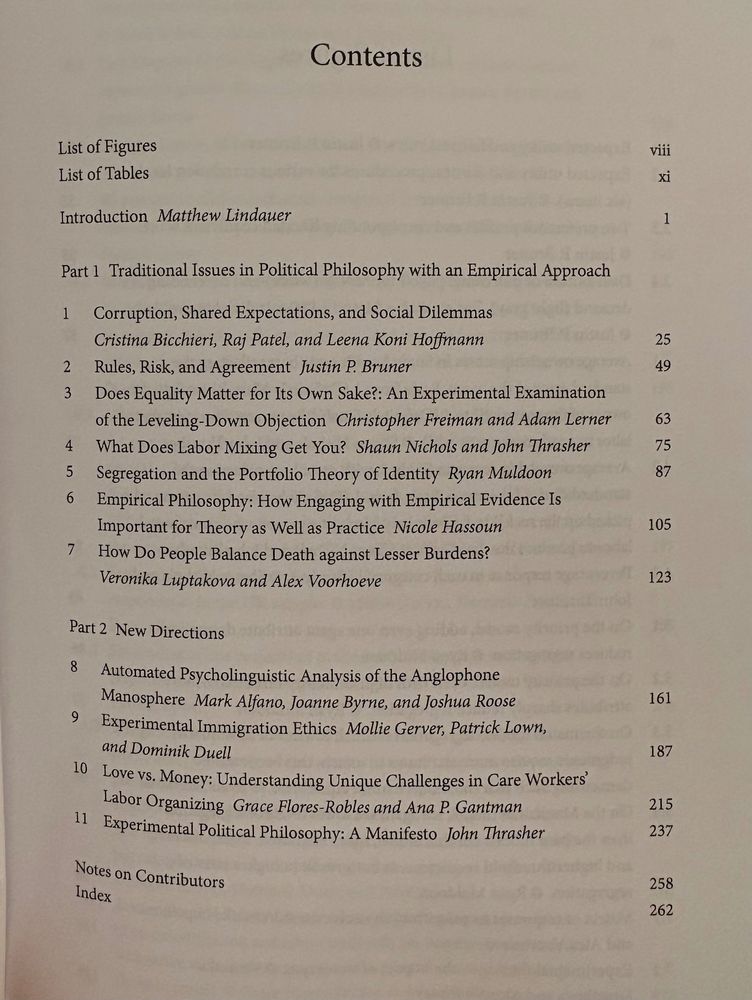
Table of contents for the volume.
Now out in paperback! Advances in Experimental Political Philosophy. Very glad to have put together such a stellar lineup of contributors. #philsky
21.06.2025 13:01 — 👍 7 🔁 4 💬 0 📌 0
people would be more likely to say that the boss is more responsible than the employee, willed the actions of the employee, AND participants also say that the actions of the boss are teleological (like most human action) but the actions of the employee are mechanistic!
15.05.2025 19:22 — 👍 1 🔁 0 💬 0 📌 0
so for example, when we experience our thought preceding our action like a little preview, we are more likely to feel like the experience of conscious will, or the feeling of action authorship. we thought similarly if the orders of the boss directly precede the actions of the their employee
15.05.2025 19:20 — 👍 1 🔁 0 💬 1 📌 0
we used Wegner's Theory of Conscious Will to help us think about cases where we are more and less likely to think that the mind (or for us, the boss) wills the body (or for us, an employee or the workforce) and we expected it would be exactly in these cases that the metaphor would be most apt
15.05.2025 19:18 — 👍 0 🔁 0 💬 0 📌 0
we tend to see the "head" or leader of the company as responsible when the company does something bad, the more the corporation-body metaphor is apt
15.05.2025 19:16 — 👍 0 🔁 0 💬 1 📌 0
we suggest that people metaphorize a company as a single person with a mind and a body, and bc we tend to assign blame to people who make decisions more than people who carry them out (see eg www.sciencedirect.com/science/arti...)
15.05.2025 19:16 — 👍 0 🔁 0 💬 1 📌 0
OSF
so the word 'corporation' comes from the latin 'corporatio' meaning "having taken bodily form" and in a new paper @gfloresrob.bsky.social nirupika sharma and i interrogate this corporation-body metaphor and its implications for how we think about blame wrt corporate wrongdoing osf.io/preprints/ps...
15.05.2025 19:13 — 👍 6 🔁 1 💬 2 📌 1
Honored to receive this award, which @anagantman.bsky.social also received! Go PsyPhi Lab! 👽
06.05.2025 14:24 — 👍 6 🔁 2 💬 4 📌 0
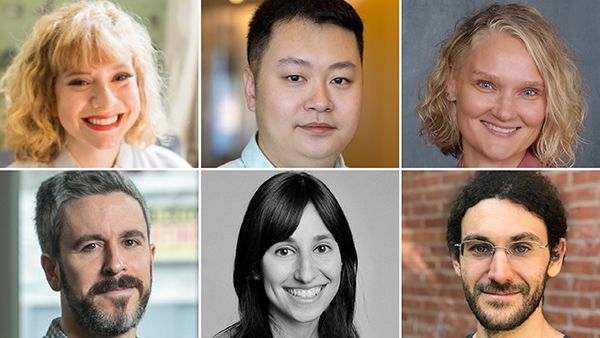
Collage of award winners
Congratulations to the Graduate Center’s Feliks Gross and Henry Wasser Awards winners: @anagantman.bsky.social, Qiushi Guo, Catherine Kramarczuk Voulgarides, @mattlindauer.bsky.social., Sarah Ita Levitan, and Vladimir Rosenhaus! www.gc.cuny.edu/news/six-cun...
06.05.2025 12:01 — 👍 10 🔁 3 💬 0 📌 3
congratulations, dr! 🍾🎉
26.04.2025 15:51 — 👍 1 🔁 0 💬 0 📌 0
Congratulations, Dr. @gfloresrob.bsky.social 🌟🧠🥳 so proud of you! And so jealous of your future mentors at princeton!
25.04.2025 13:06 — 👍 2 🔁 0 💬 0 📌 0
great thread on our working paper on the role that pursuits besides moral goodness--specifically aesthetic or intellectual ones--play in access our feelings that we are our free and authentic selves
love working with these two @jowylie.bsky.social @mattlindauer.bsky.social
25.04.2025 13:03 — 👍 8 🔁 0 💬 0 📌 0
Political Philosopher | W Alton Jones Professor of Philosophy at Vanderbilt | extremely amateur self-taught guitarist
Evolution, society, morality, cooperation
(current discussions and job opportunities)
Professor of social psychology at Université libre de Bruxelles, Belgium. Daily 🚴 .
I am here for all interesting and funny posts on the social sciences, broadly understood and including open science and meta science, academia, teaching and research. https://linktr.ee/ingorohlfing
Academic, 1st gen, glass cliffer, feminist, returned Asian Australian, book-clubber, Scruff wrangler, mother to The Boy. she/her 🏳️🌈
We represent the interests of student members of the Society for Personality and Social Psychology. Email us at spsp_GSC@spsp.org!
#AmplifyGradStudentVoices
Leibniz Institute for Psychology @zipd.bsky.social & Uni Trier (Germany)- Open Science & social influence (conspiracy beliefs, power, social norms, competition) - views are my own
Researcher/teacher interested in intergroup relations, diversity, and multiculturalism
Prof at UCLouvain
Evaluative learning | Demand artifacts | Methods
Social psychologist studying gender dynamics and how using social media impacts our sense of self ✨️
Social psychologist and emotions researcher at Sussex Business School
Postdoc in social psychology at the University of Milano-Bicocca and many other things
GScholar: https://scholar.google.com/citations?user=GBT7pn0AAAAJ&hl=it&oi=ao
RGate: https://www.researchgate.net/profile/Marco-Marinucci
X: https://x.com/Marc0Marinucci
PhD Candidate and Assistant Lecturer @ Massey University | System Justification | Polarization | Political Participation | Conspiratorial Beliefs
🇵🇦🇦🇲🇺🇸 in 🇳🇿
evanavaldes.carrd.co
Postgraduate Researcher at Durham University | Quantitative Social Psychology
Researching social attitudes and prejudice. Machine learning, computational methods, large text datasets, survey experiments.
Internet waif. Employed as a social psychologist at the Univeristy of Sussex but my interest in people caring about and trying to help others takes me far beyond the boundaries suggested by my job title.
Maîtresse de conférences en Psychologie Sociale, Associate Professor in #socialpsychology
University of Paris 8
Intergroup Relations; Stereotyping; Multiple Identities; Self and Identity
The official feed of the Evolutionary Social Psychology Co-Laboratory at ASU, aka the Ken(rick)(Neu)berg(Beck)er(Varn)um Lab.
Associate professor of psychology at the University of Miami. Developmental science, infant social behavior. She/her
Director of @soccoglab.bsky.social
ManyBabies6 - Neonatal imitation: https://manybabies.org/MB6/
Psychological scientist 📊, first-gen student 👩🏻🎓, aspiring optimist ☀️, homesick Canadian 🇨🇦. (But at least I'm in the amazing city of Chicago! 💪) Lover of beautiful spaces, natural 🏞️ and built 🏙️. (She/her)


















